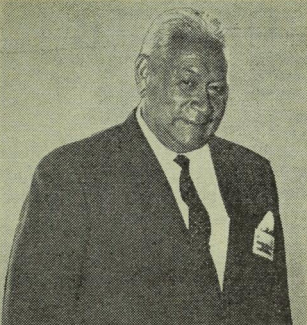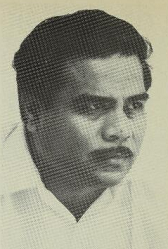Related Research Articles

The islands which now form the Republic of Kiribati have been inhabited for at least seven hundred years, and possibly much longer. The initial Austronesian peoples’ population, which remains the overwhelming majority today, was visited by Polynesian and Melanesian invaders before the first European sailors visited the islands in the 17th century. For much of the subsequent period, the main island chain, the Gilbert Islands, was ruled as part of the British Empire. The country gained its independence in 1979 and has since been known as Kiribati.

The Gilbert and Ellice Islands in the Pacific Ocean were part of the British Empire from 1892 to 1976. They were a protectorate from 1892 to 12 January 1916, and then a colony until 1 January 1976. The history of the colony was mainly characterized by phosphate mining on Ocean Island. In October 1975, these islands were divided by force of law into two separate colonies, and they became independent nations shortly thereafter: the Ellice Islands became Tuvalu in 1978, and the Gilbert Islands became part of Kiribati in 1979.
Sir Toaripi Lauti was a Tuvaluan politician who served as chief minister of the Colony of Tuvalu (1975–78), as the first prime minister following Tuvalu's independence (1978–1981) and governor-general of Tuvalu (1990–1993). He was married to Sualua Tui.

The British Western Pacific Territories (BWPT) was the name of a colonial entity, created in 1877, for the administration, under a single representative of the British Crown, styled High Commissioner for the Western Pacific, of a series of Pacific islands in and around Oceania. Except for Fiji and the Solomon Islands, most of these colonial possessions were relatively minor.
Sir Tomu Malaefone Sione was a political figure from the Pacific nation of Tuvalu. He worked as a journalist from 1962 to 1968, and held the post of radio announcer in the Broadcasting and Information Department of the administration of the Gilbert and Ellice Islands Colony (GEIC). He was the head of the southern Niutao clan. He was married to Segali.

The Parliament of Tuvalu is the unicameral national legislature of Tuvalu. The place at which the parliament sits is called the Vaiaku maneapa. The maneapa on each island is an open meeting place where the chiefs and elders deliberate and make decisions.

The House of Assembly is the Legislature of Kiribati. Since 2016, it has 45 members, 44 elected for a four-year term in 23 single-seat and multi-seat constituencies and 1 non-elected delegate from the Banaban community on Rabi Island in Fiji. From 1979 to 2016, the Attorney general was an ex officio member of the legislature, until a change of the constitution modified this provision.
General elections were held in the Gilbert and Ellice Islands on 4 April 1974. All candidates ran as independents.
General elections were held in the Gilbert and Ellice Islands in 1967. All candidates ran as independents.
Henry Faati Naisali, CMG, AO, OBE was a Tuvaluan politician who served as Deputy Prime Minister of Tuvalu (1985-1989), Secretary General of the Pacific Islands Forum (1988-1992) and Pro-Chancellor of The University of the South Pacific (1985-1990). He is notable for co-founding the Tuvalu Trust Fund which lead Tuvalu to achieve greater financial autonomy.

General elections were held in the Cook Islands in March 1956. The elections took the form of an election to Rarotonga Island Council, whose sole European member also automatically became the only elected member of the Legislative Council. Incumbent member Henley McKegg was narrowly re-elected, defeating R.J.A. Ingram by three votes.

General elections were held in Papua and New Guinea on 31 August 1957.

General elections were held in the Cook Islands in 1953. The elections took the form of an election to Rarotonga Island Council, whose sole European member also automatically became the only elected member of the Legislative Council.

Afioga Afoafouvale Misimoa, also known by his European name Harry William Moors, was a Western Samoan businessman and politician. He served as a member of the Legislative Assembly in two spells between 1951 and 1967, and was the first Pacific Islander to become Secretary-General of the South Pacific Commission. He also founded the Samoa Rugby Union.

Legislative Council elections were held in the Cook Islands in 1947, the first after the establishment of the new legislature.

The Governor of the Gilbert and Ellice Islands was the colonial head of the Gilbert and Ellice Islands civil service from 1892 until 1979.

Te Reuben Kiraua Uatioa was a Gilbertese politician. After being elected to the House of Representatives in 1967, he became the first Chief Elected Member of the Gilbert and Ellice Islands colony and then Leader of Government Business, serving until unexpectedly losing his seat in 1974. He then served as Speaker of the House of Representatives until 1975.
Sione Tui Kleiss was a Tuvaluan civil servant, priest and politician. He was a member of the legislature of the Gilbert and Ellice Islands from 1967 until the Ellice Islands separated in 1975, also serving as Minister for Commerce and Industry. Following the separation, he became a member of the Tuvalu House of Assembly and served as its Speaker.
Bwebwetake Areieta was an I-Kiribati politician. He served as a member of the Legislative Council and House of Assembly from 1971 until his death, also holding the posts of Member for Social Services and Minister of Communications, Works and Utilities during the 1970s.

Naboua T. Ratieta was an I-Kiribati politician who became the first Chief Minister of the Gilbert and Ellice Islands in 1974. The Ellice Islands separated from the colony the following year, and he remained Chief Minister of the Gilbert Islands until 1978. He also served as an MP from 1968 until his death.
References
- ↑ "Gilbert, Ellice To The Polls Under A Blazing Noonday Sun". 42(4) Pacific Islands Monthly. 1 April 1971. Retrieved 2 October 2021.
- ↑ Barrie Macdonald (1971) Policy and practice in an atoll territory: British rule in the Gilbert and Ellice Islands, 1892 – 1970
- 1 2 3 4 5 6 7 New-look Gilbert and Ellice politics may spark ailing public interest Pacific Islands Monthly, May 1971, p24
- ↑ Howard Van Trease (1993) Atoll Politics: The Republic of Kiribati, p8
- 1 2 Decolonization United Nations, July 1979